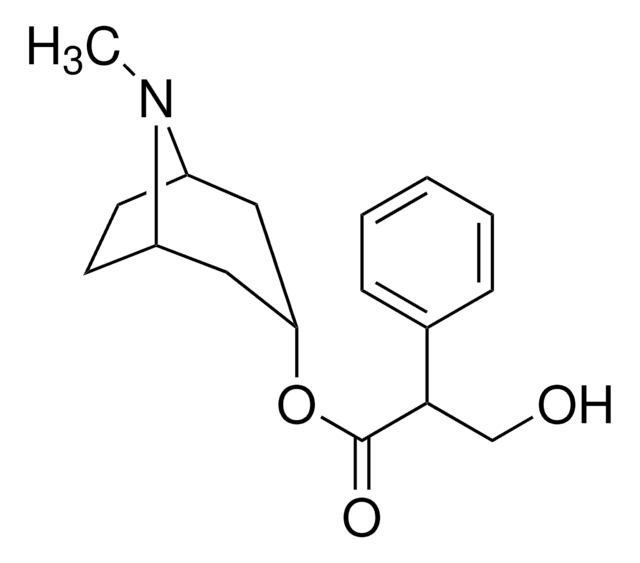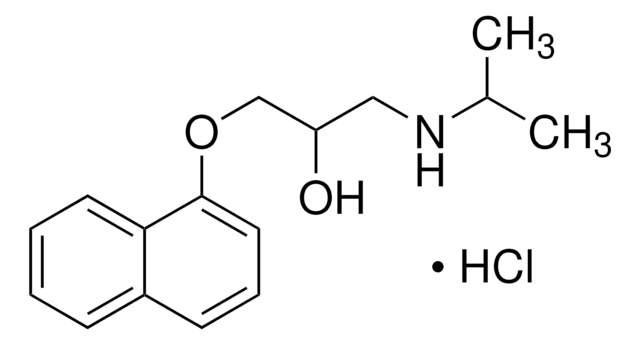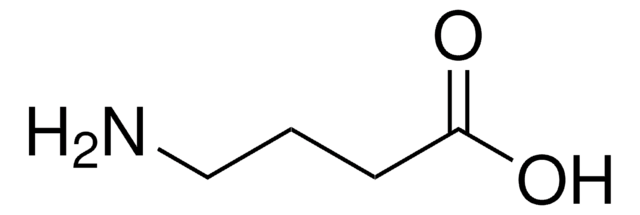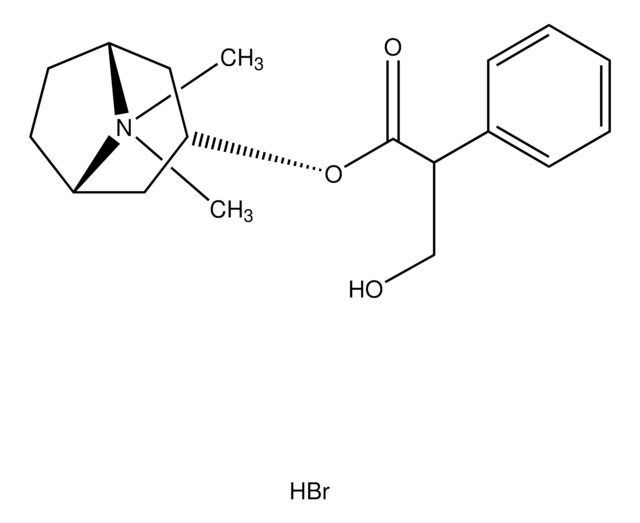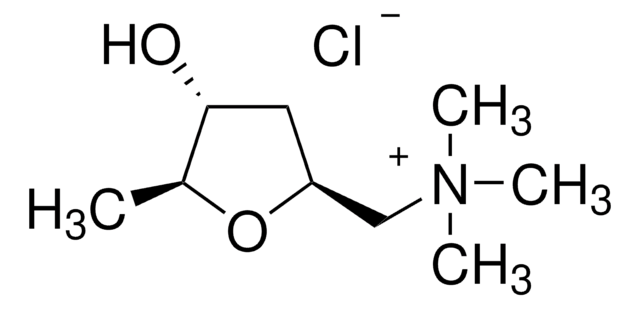A0257
Atropine sulfate salt monohydrate
≥97% (TLC), crystalline, cholinergic receptor antagonist
Synonyme(s) :
α-(Hydroxymethyl)benzeneacetic acid 8-methyl-8-azabicyclo[3.2.1]oct-3-yl ester, Tropine tropate
About This Item
Produits recommandés
product name
Atropine sulfate salt monohydrate, ≥97% (TLC), crystalline
Niveau de qualité
Pureté
≥97% (TLC)
Forme
crystalline
Couleur
white
Pf
189-192 °C (A) (lit.)
Solubilité
H2O: 2.5 g/mL (stable for several days at 4 °C.)
ethanol: 200 mg/mL (stable for several days at 4 °C.)
glycerol: 400 mg/mL (stable for several days at 4 °C.)
Chaîne SMILES
O.OS(O)(=O)=O.CN1[C@H]2CC[C@@H]1C[C@@H](C2)OC(=O)C(CO)c3ccccc3.CN4[C@H]5CC[C@@H]4C[C@@H](C5)OC(=O)C(CO)c6ccccc6
InChI
1S/2C17H23NO3.H2O4S.H2O/c2*1-18-13-7-8-14(18)10-15(9-13)21-17(20)16(11-19)12-5-3-2-4-6-12;1-5(2,3)4;/h2*2-6,13-16,19H,7-11H2,1H3;(H2,1,2,3,4);1H2/t2*13-,14+,15+,16?;;
Clé InChI
JPKKQJKQTPNWTR-CHYDPLAESA-N
Informations sur le gène
human ... CHRM1(1128) , CHRM2(1129) , CHRM3(1131) , CHRM4(1132) , CHRM5(1133)
Vous recherchez des produits similaires ? Visite Guide de comparaison des produits
Description générale
Application
- to assay specific binding of high-affinity 3-quinuclidinyl benzilate-3H ([3H]QNB) to the muscarinic acetylcholine receptor (mAChR)
- to block the recovery phase of the aldicarb (Ald) response
- as an analyte for liquid chromatography with tandem mass spectrometry (LC-MS/MS)
- as a mAChR antagonist to block acetylcholine receptor
Actions biochimiques/physiologiques
Mention d'avertissement
Danger
Mentions de danger
Conseils de prudence
Classification des risques
Acute Tox. 2 Inhalation - Acute Tox. 2 Oral
Code de la classe de stockage
6.1A - Combustible acute toxic Cat. 1 and 2 / very toxic hazardous materials
Classe de danger pour l'eau (WGK)
WGK 3
Équipement de protection individuelle
Eyeshields, Faceshields, Gloves, type P3 (EN 143) respirator cartridges
Certificats d'analyse (COA)
Recherchez un Certificats d'analyse (COA) en saisissant le numéro de lot du produit. Les numéros de lot figurent sur l'étiquette du produit après les mots "Lot" ou "Batch".
Déjà en possession de ce produit ?
Retrouvez la documentation relative aux produits que vous avez récemment achetés dans la Bibliothèque de documents.
Les clients ont également consulté
Notre équipe de scientifiques dispose d'une expérience dans tous les secteurs de la recherche, notamment en sciences de la vie, science des matériaux, synthèse chimique, chromatographie, analyse et dans de nombreux autres domaines..
Contacter notre Service technique